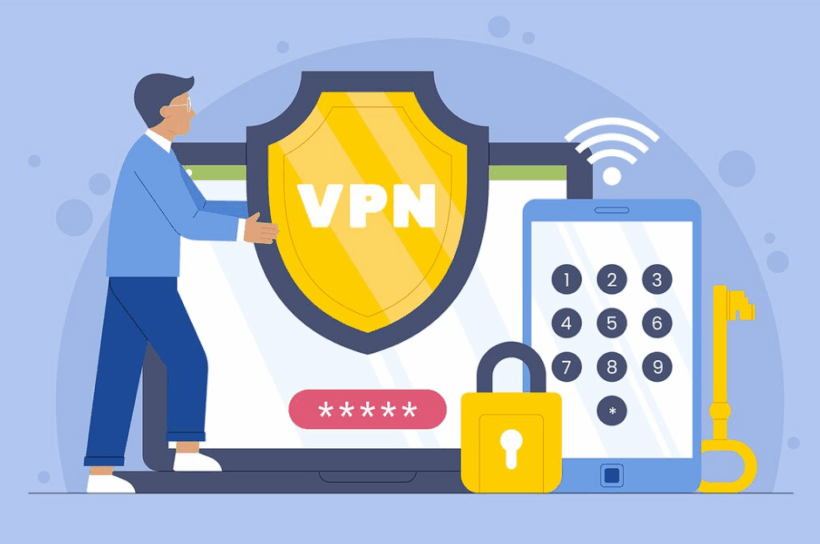Introduction: Why No-Logs Policies Matter
When you sign up for a VPN, you’re trusting it with your private data. Providers love to advertise a VPN no-logs policy, but here’s the uncomfortable truth — not every VPN is honest. Some claim they don’t track activity, yet secretly store data that can identify you. If privacy is the main reason you use a VPN, knowing how to spot VPNs that lie about no-logs policies is essential. Let’s break down the red flags, warning signs, and how to stay safe.
What Does a True No-Logs Policy Mean?
The Basics of Logging
Logging means storing records of your activity, such as websites you visit or IP addresses you use.
Types of Logs
- Activity logs: Exact sites visited, messages, downloads. (Big red flag)
- Connection logs: IP addresses, session times, bandwidth usage. (Less invasive but still concerning)
A strict no-logs VPN stores none of this — not activity, not IPs, nothing traceable.
Why Some VPNs Lie About No-Logs
- Marketing hype to attract privacy-conscious users
- Operating in countries with weak privacy laws
- Monetizing user data secretly
- Lack of third-party audits to prove their claims
Red Flags That a VPN May Be Lying
Vague or Overly Broad Privacy Policies
If the privacy policy says “minimal logs” without explaining what that means, be cautious.
Jurisdiction in Surveillance-Heavy Countries
VPNs based in the US, UK, or other “Five Eyes” nations may be forced to log data.
No Independent Audits
Trustworthy VPNs invite independent firms to audit their servers and policies. A lack of audits can be suspicious.
Contradictory Marketing Claims
If a VPN advertises “zero logs” but admits to collecting IP addresses or timestamps, that’s misleading.
Case Studies: VPNs That Broke Trust
- PureVPN (2017): Claimed no logs but provided user data to authorities.
- HideMyAss (2011): Turned over logs that led to the arrest of a user.
These incidents prove that bold marketing isn’t always the truth.
How to Verify a VPN’s No-Logs Policy
Look for Independent Audits
Top VPNs like ExpressVPN, NordVPN, and Proton VPN have had multiple audits to prove their claims.
Check for RAM-Only Servers
RAM-based servers erase data automatically upon reboot. Diskless infrastructure is a strong sign of no-logs commitment.
Read Transparency Reports
Honest providers publish regular reports showing government requests and how they respond.
Test It Yourself
Check for IP or DNS leaks. While not proof of logs, it helps reveal shady practices.
Best VPNs With Proven No-Logs Policies
- ExpressVPN: Multiple independent audits, RAM-only servers, based in the British Virgin Islands.
- NordVPN: Audited twice, RAM-only infrastructure, based in Panama.
- Proton VPN: Open-source apps, strong Swiss privacy laws, regular transparency reports.
- Mullvad: No email needed for sign-up, proven privacy-first practices.
Free VPNs and No-Logs Claims
Be extra skeptical of free VPNs. Many claim “no logs” but fund their service by selling your browsing data. If privacy is your priority, stick to reputable paid providers.
Conclusion: Stay Smart About No-Logs Claims
VPN privacy isn’t about flashy marketing; it’s about verifiable trust. Learning how to spot VPNs that lie about no-logs policies will save you from handing personal data to companies that don’t deserve it. Look for audits, transparency, and RAM-only servers.
The bottom line? Choose providers with proof, not just promises.
FAQ
- What’s the difference between activity logs and connection logs?
Activity logs track your browsing history, while connection logs record IPs and session details. - Are all VPNs that claim “no logs” lying?
No. Some truly enforce strict no-logs, but you need to verify through audits and reports. - Why are audits important for VPNs?
Audits prove whether a VPN’s infrastructure matches its privacy promises. - Can free VPNs be trusted with no-logs claims?
Rarely. Most free VPNs survive by monetizing user data. - Which VPNs have the strongest no-logs reputation?
ExpressVPN, NordVPN, Proton VPN, and Mullvad consistently back up their claims with evidence.

